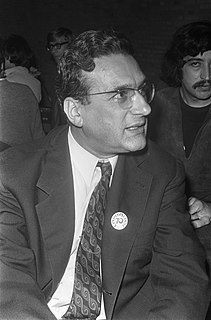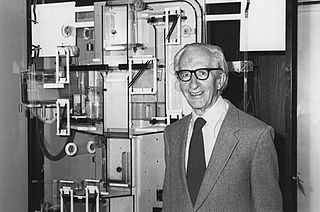A Quote by Murray Rothbard
Positivism eliminates any kind of natural law principle - for example, that there are economic laws which can be transgressed only at your peril. With positivism, there is a tendency to leap into ad hoc economic theory.
Related Quotes
One’s life, liberty and the products of one’s labor were not intended to be up for grabs by grubby, greedy majorities. Contra classical natural law theory, legal positivism equates justice with the law of the state. However, from the fact that most Americans want others to fund or subsidize their health care, it does not follow that they have such a right. A need is not a right.
I have read a great deal of economic theory for over 50 years now, but have found only one economic "law" to which I can find NO exceptions: Where the State prevents a free market, by banning any form of goods or services, consumer demand will create a black market for those goods or services, at vastly higher prices. Can YOU think of a single exception to this law?
[The] first postulate of the Principle of Uniformity, namely, that the laws of nature are invariant with time, is not peculiar to that principle or to geology, but is a common denominator of all science. In fact, instead of being an assumption or an ad hoc hypothesis, it is simply a succinct summation of the totality of all experimental and observational evidence.
Does man's freedom consist in revolting against all laws? We say no, in so far as laws are natural, economic, and social laws, not authoritatively imposed but inherent in things, in relations, in situations, the natural development of which is expressed by those laws. We say YES if they are political and juridical laws, imposed upon men by men.
The economic freedom which is the prerequisite of any other freedom cannot be the freedom from economic care which the socialist promise us, and which can be obtained only by relieving the individual at the same time of the necessity and of the power of choice: it must be the freedom of economic activity which, with the right of choice, inevitably also carries the risk and the responsibility of that right
Without calculation, economic activity is impossible. Since under Socialism economic calculation is impossible, under Socialism there can be no economic activity in our sense of the word All economic change, therefore, would involve operations the value of which could neither be predicted beforehand nor ascertained after they had taken place. Everything would be a leap in the dark. Socialism is the renunciation of rational economy.
Almost all systems of economic thought are premised on the idea of continued economic growth, which would be fine and dandy if we lived on an infinite planet, but there's this small, niggling, inconvenient fact that the planet is, in fact, finite, and that, unlike economic theory, it is governed by physical and biological reality
Unlike physics, for example, such parts of the bare bones of economic theory as are expressible in mathematical form are extremely easy compared with the economic interpretation of the complex and incompletely known facts of experience, and lead one a very little way towards establishing useful results.
































